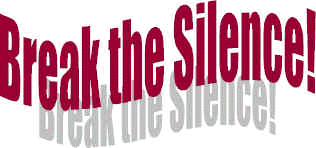|
Article: Sex Offender Registration in CT - It's Not That Simple
Sexual Offender Treatment
"Children are best protected by giving them the knowledge and skills necessary for their safety and well-being."
The importance of sex education for children
The effects of sexual abuse
Do Something About It:

Connecticut Sexual Assault
Crisis Services, Inc.
110 Connecticut Blvd.
East Hartford, CT 06108
Tel/TTY: 860-292-9881
Fax: 860-291-9335

Call (888) 999-5545
or
(888) 568-8332 (Espaņol)
to be connected to
the sexual assault crisis service
nearest you
Local Rape Crisis Centers

Centers Provide:
More Information:
www.connsacs.org
|
       
What is Child Sexual Abuse?
A guide for parents to teach their children personal
safety rules to reduce the risk of sexual abuse.
Cadencia Brade, Former Dir. of Training & Outreach
Connecticut Sexual Assault Crisis Services
Sexual abuse includes:
- Fondling or touching the child's private parts or forcing the child to touch another's private parts
- Exposing children to adult sexual activity or pornographic materials
- Having children perform in pornographic movies or pose for pornographic materials
- Sexual intercourse
Statistics:
- 1 in 4 girls and 1 in 6 boys will be sexually assaulted before age 18,
- 85% of child sexual abuse is committed by relatives, close family friends or an adult that the child knows and trusts,
- The median age that girls and boys are sexually abused is 9 years old.
- In Connecticut, 30% of victims seen at sexual assault crisis services in 1996-97 were under the age of 18
Teach your child these personal safety rules:
- The difference between safe and unsafe touches; what is appropriate physical affection.
- The proper names for all their private parts; many children are not able to tell about the abuse because they don't know the words to use.
- Safety rules apply to all adults; not just strangers.
- Their bodies belong to them and it is not okay for another person to touch their private parts.
- It is okay to say no if someone tries to touch their body or do things that make them feel uncomfortable; no matter who the person is
- They should not keep secrets about touching, no matter what the person says; if someone touches them, tell and keep telling until someone listens!
 Note: Note:
- You may want to include your conversation about personal safety rules when teaching your child about fire safety, bike safety, or traffic safety.
- You should role-play the above rules (lessons) several times. Do not expect your child to memorize them.
Signs of Possible Abuse include:
These signs are possible indicators and do not necessarily mean sexual abuse has occurred.
- excessive clinging or crying
- sleep disturbances, nightmares
- fear of particular adults or places
- bedwetting
- problems with school (refusal to attend or a drop in grades)
- depression; withdrawal from family and friends
- alcohol or drug use
- change in eating habits
- frequent touching of private parts
- unexplained bleeding, pain, irritation of mouth or private parts
- any unexplained change in behavior or development of new behaviors
Ways to support you child if s/he has been abused:
- Believe your child.
- Reassure your child that her or his safety is important.
- Assure your child that she/he is not to blame for the abuse.
- Remember that how you respond to your child is critical to his or her ability to deal with the trauma of the abuse.
- Get your child medical help
Explain to your child what you need to do to help him or her
- Get support for yourself; this is a very difficult issue for any parent to handle.
- Call your local sexual assault crisis center for assistance for your child and yourself.
 What Parents Should Know What Parents Should Know
- Every child is vulnerable to sexual abuse regardless of cultural background or income level.
- Children need to feel loved, valued, and protected.
- Children are best protected by giving them the knowledge and skills necessary for their safety and well-being.
- Often there are no physical signs of sexual abuse.
- Many cases of child sexual abuse go unreported because the child is afraid or ashamed to tell anyone what has happened.
- The offender may have threatened to hurt a family member, or the child feels that s/he is to blame for the abuse.
- It is important to show interest in your child's activities; let her/him know that you are available to talk and listen; allow your child to share thoughts and feelings with you.
- The child is never to blame for the abuse; children cannot prevent abuse, only the offender can.
- Studies suggest that personal safety rules can be taught and understood by children age 3 and up.
- There is little evidence that children make false allegations of abuse; what is more common is a child denying that abuse happened when it did.
For help or to learn more: Go to www.connsacs.org for a center near you.
Or call toll-free: (888) 999-5545
en Espaņol: (888) 568-8332
You will be connected to the nearest sexual assault crisis service.
Each center can provide:
- 24-hour crisis hotline
- information and referral
- advocacy for children and non-abusing parent with police and court
- counseling
- support groups and more.
|
